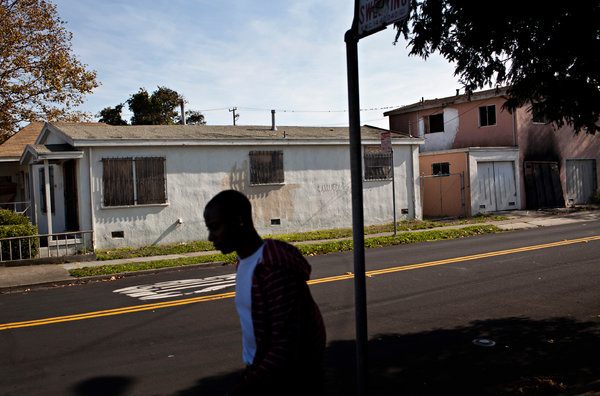|
By PATRICIA COHEN
AUGUST 16, 2015Even with tuition shooting up, the payoff from a college degree remains strong, lifting lifelong earnings and protecting many graduates like a Teflon coating against the worst effects of economic downturns. But a new study has found that for black and Hispanic college graduates, that shield is severely cracked, failing to protect them from both short-term crises and longstanding challenges. “The long-term trend is shockingly clear,” said William R. Emmons, an economist at the Federal Reserve Bank of St. Louis and one of the authors of the report. “White and Asian college grads do much better than their counterparts without college, while college-grad Hispanics and blacks do much worse proportionately.” A college degree has long been recognized as a great equalizer, a path for minorities to help bridge the economic chasm that separates them from whites. But the report, scheduled to be released on Monday, raises troubling questions about the ability of a college education to narrow the racial and ethnic wealth gap. “Higher education alone cannot level the playing field,” the report concludes. Economists emphasize that college-educated blacks and Hispanics over all earn significantly more and are in a better position to accumulate wealth than blacks and Hispanics who do not get degrees. Graduates’ median family income in 2013 was at least twice as high, and their median family wealth (which includes resources like a home, car and retirement account) was 3.5 to 4 times greater than that of nongraduates. But while these college grads had more assets, they suffered disproportionately during periods of financial trouble. From 1992 to 2013, the median net worth of blacks who finished college dropped nearly 56 percent (adjusted for inflation). By comparison, the median net worth of whites with college degrees rose about 86 percent over the same period, which included three recessions — including the severe downturn of 2007 through 2009, with its devastating effect on home prices in many parts of the country. Asian graduates did even better, gaining nearly 90 percent. To understand just how disappointing these results are, look at the impact during this period on comparable groups without college degrees. Blacks without degrees, in large part because they had much less to lose, experienced a 3.8 percent drop in wealth. Whites who didn’t graduate from college lost nearly 11 percent. The wealth of Asian nongrads fell more than 44 percent. There is not a simple answer to explain why a college degree has failed to help safeguard the assets of many minority families. Persistent discrimination and the types of training and jobs minorities get have played a role. Another central factor is the heavy debt many blacks and Hispanics accumulate to achieve middle-class status. The collapse of the housing bubble played havoc with college-educated black and Hispanic families, who on average accumulated a huge amount of debt relative to the size of their paychecks. They borrowed a lot to buy homes, only to see them plunge in value during the mortgage crisis. While the average value of a home owned by a white college graduate declined 25 percent, homes owned by black and Hispanic grads fell by about twice that. This loss was made more devastating by the fact that blacks and Hispanics tended to have more of their wealth concentrated in their homes than whites and Asians, who, on average, accumulated more assets in the stock and bond markets, primarily through retirement accounts. The housing boom and bust particularly whipsawed college-educated Hispanics: From 2007 to 2013, their net worth fell a whopping 72 percent.
0 Comments
Your comment will be posted after it is approved.
Leave a Reply. |
AprilUnPlugged
April Yvette Thompson is a Tony-winning producer, actor, writer, thinker, dreamer in search of beauty, truth, love & flights of serendipitous grace. Archives
August 2020
Categories
All
|

 RSS Feed
RSS Feed